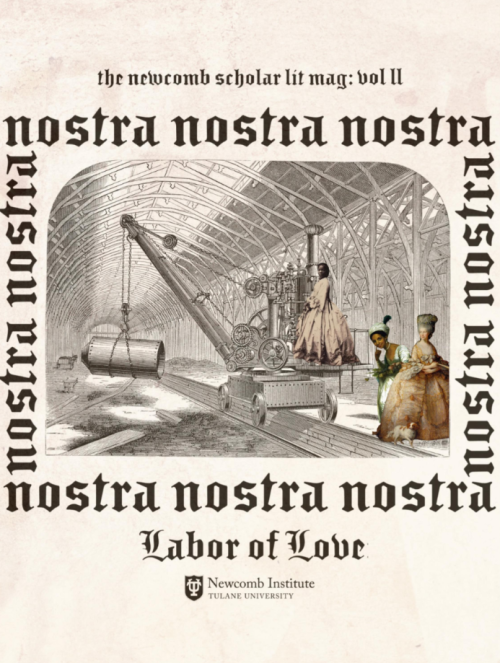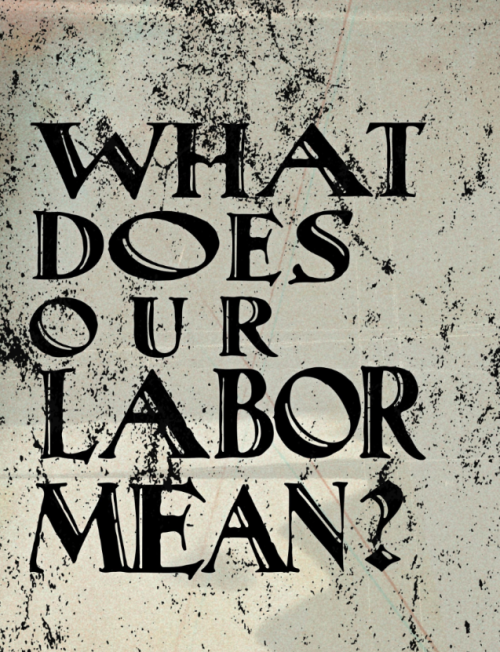Building Community and Feminist Scholarship with NOSTRA
August 1, 2024
This May, the Newcomb Scholars, a selective group of students at Newcomb Institute focused on feminist leadership, published their annual literary magazine, NOSTRA. The title is Latin for “ours,” and it is certainly a great unifying aspect of the Scholars program. The magazine exclusively includes creative works by scholars across cohorts.
The magazine was founded in 2022 as a way to expand the scholars program in a more creative direction. “It was really important that we acknowledge that the Newcomb Scholars cohort does a lot of really great academic work in the classroom, but academia is not just confined to papers…There's a lot of really impactful work that the scholars do outside of the classroom, and that deserves to be celebrated. There’s a lot of knowledge that can be generated through sculpture making, poetry, and stuff like that,” Mika Nijhawan (SLA ‘25) said. She is a co-editor of the magazine, along with Ella Jeffries (SLA ‘26). Ella added that the art shown in the magazine is useful, despite some views about artistic value. “I think sometimes art can be viewed as something that’s just aesthetic. With the art we’re showing in the magazine we’re able to say ‘how do we take the art and use it to answer questions that we have about the world or to engage in feminist thought?’ I like the intersections of those topics.”
To help guide those intersections, NOSTRA always has a theme or guiding question. This year, the theme is “What does our labor mean?” The theme originated in Mika’s notes app, where she wrote “labor/revolution/economic empowerment.” After that, the theme evolved into a question that many college students, especially students with marginalized gender identities, think about. “I was thinking, ‘I’ve been engaging with feminist scholarship for the past two years with Newcomb: where do I take this? What am I going to do with the rest of my life? How do I actually apply these feminist principles into my career?’ These are the questions that I was grappling with internally, but making the entire magazine about this and making it into a more external thing allows us to engage with it as a community. It’s less isolating to know there’s a lot of people out there that are also thinking about these things.” The theme is one of the ways that the magazine helps the Newcomb Scholars build community, both within their program and beyond.
Ella added that she was impressed with how specific NOSTRA’s theme was, while not limiting the art that was submitted. “When I think back to the magazine I used to work on, our focus was solely just to get people’s work out there; it didn’t matter what it was. Our theme was just one word, like ‘nostalgia’ or ‘reflections,’ but it wouldn’t actually have anything to do with the pieces. When I started working with NOSTRA, I was really impressed with how we really put out guidance for the theme: What does our labor mean? What does it mean to be entering the workforce as a gender minority? What does it mean to be part of this capitalist society that expects our labor to function in a specific way?”
With this level of focus, the editors were surprised by how many different interpretations there were of the theme. Mika said, “Working on the magazine showed me that feminist scholarship is an active process. It also showed me that what I initially thought the magazine would go when the theme was thought up is not what happened. That’s because it’s a feminist magazine and we welcome a lot of different perspectives. The way a lot of people react to the concept of gender and labor is very different from the way I react, and it’s been a very humbling experience.”
When asked about future goals for the magazine, both editors had ideas. “It would be cool to do some writing workshops with people to get them started writing ideas and build community in that way,” Ella suggested. Mika also wants the magazine to be more interactive and to take a more active role in propelling social change. “A lot of academics are really comfortable reading about feminist writing…and then not applying it to real life. I kind of worry about that with NOSTRA. I want us to be more proactive…I don’t even know if it’s possible but I would love it if we fundraised with the magazine and donated to a charity in New Orleans or some sort of local community center. I would also like the magazine to have a more tangible call to action in it.”
The NOSTRA Magazine is available here. To join the Newcomb Scholars and contribute to the next edition, click here.


